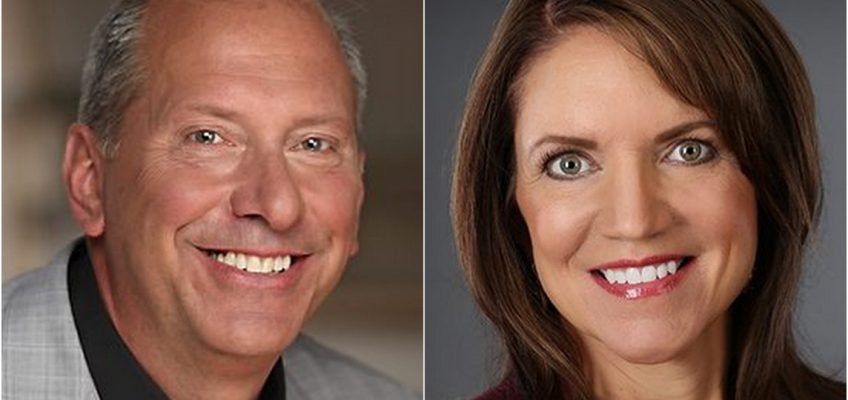Bruce Helmer and Peg Webb
President Donald Trump’s “One Big Beautiful Bill” Act (OBBBA) is a sweeping package that cements much of the 2017 Tax Cuts and Jobs Act (TCJA) into law. But it also adds new deductions, targeted incentives and temporary perks for specific groups. For investors, retirees and business owners, the legislation offers both opportunities and challenges. Here are the five most important takeaways.
Lock in low tax rates for the long haul
The OBBBA keeps the marginal rates at 10%, 12%, 22%, 24%, 32%, 35% and 37%, all indexed for inflation. Before this law, those rates were set to expire at the end of 2025, reverting to pre-TCJA levels.
For investors, this stability can be a green light for long-term strategies like Roth IRA conversions, capital gains harvesting and structured charitable giving. While “permanent” in Washington is never truly permanent, the current brackets give taxpayers a clearer runway for planning.
If you anticipate higher rates in the future, act now to lock in today’s historically low brackets through strategic income recognition.
Use the bigger SALT deduction while it lasts
The cap on state and local tax (SALT) deductions jumps from $10,000 to $40,000 in 2025, increasing by 1% annually through 2029. After that, the cap snaps back to $10,000 in 2030.
For high-tax states like Minnesota, this temporary expansion is a meaningful break, especially for households with large property tax bills or significant state income tax obligations. But the benefit phases out for joint filers above $500,000 in modified adjusted gross income (MAGI) and singles above $250,000, reducing the deduction by 30% of income above those thresholds.
Consider bunching deductions or using a pass-through entity tax (PTE) election to maximize the value during the five-year window.
Take advantage of permanent relief for pass-throughs
The OBBBA makes the 20% Qualified Business Income (QBI) deduction permanent and adds a $400 minimum floor. For many small-business owners, professional practices and independent contractors, this locks in a major tax break that had been set to expire.
The bill also expands Opportunity Zone rules to encourage rural investment, potentially opening new avenues for tax-advantaged capital deployment.
Review your entity structure, compensation method and income timing to fully capture the deduction — and explore whether rural Opportunity Zone projects could enhance your portfolio’s after-tax return.
Tap into targeted breaks for seniors and newborns
Several niche but noteworthy benefits are included in the new law:
— For seniors (age 65-plus), there’s an extra $6,000 federal deduction per person from 2025 through 2028, even if you itemize. The benefit phases out above $75,000 MAGI for singles and $150,000 for joint filers. While it doesn’t eliminate Social Security taxation, it can meaningfully reduce it for many retirees.
— Workers can claim up to a $25,000 deduction for tip and overtime income, and up to $10,000 for interest on auto loans for new U.S.-assembled vehicles, through 2028.
— “Trump Accounts” provide a $1,000 government-funded investment account for each baby born between 2025 and 2028, starting in 2026. Families can add up to $5,000 annually, and employers up to $2,500 (both indexed for inflation from 2027). Earnings grow tax-deferred, but withdrawals before age 59½ may incur taxes and a 10% penalty.
You need to carefully coordinate these deductions with your broader tax strategy, especially required minimum distributions (RMDs), trust distributions and Roth conversions. For parents, compare the Trump Accounts against 529 plans or custodial accounts to determine which offers greater flexibility and control for your situation.
Keep an eye on potential fiscal storm clouds
The Congressional Budget Office estimates the OBBBA will add $2.4 trillion to the federal deficit over the next decade — before factoring in potential economic effects. That raises several risks:
— Higher future taxes: Policymakers may eventually turn to capital gains, estate taxes or new wealth taxes to shore up revenue.
— Rising interest rates: Increased Treasury borrowing could lift yields, which can reduce bond prices and raise borrowing costs.
— Inflation pressure: More deficit spending could erode the purchasing power of cash and fixed income.
— Entitlement reform: Large deficits may prompt changes to Medicare or Social Security.
— Market instability: A loss of fiscal confidence could shake investor sentiment and credit ratings.
In all market environments, we recommend building flexibility into retirement and investment plans, diversifying across asset classes, maintaining adequate liquidity and keeping an eye on policy developments.
Change can mean opportunity, but risks persist
The OBBBA offers a mix of certainty and urgency: certainty in the form of locked-in tax brackets and permanent business deductions, and urgency in the form of time-limited SALT relief, senior benefits and newborn accounts. For those willing to act now, the opportunities are real — but so are the risks on the horizon. Smart investors and retirees should work with a qualified adviser to model different scenarios, optimize tax timing, and keep plans adaptable in the face of shifting economic and political winds. In Washington, after all, “permanent” is rarely forever.
Prior to investing in a 529 Plan, investors should consider whether the investor’s or designated beneficiary’s home state offers any state tax or other state benefits such as financial aid, scholarship funds, and protection from creditors that are only available for investments in such state’s qualified tuition program. Withdrawals used for qualified expenses are federally tax free. Tax treatment at the state level may vary. Please consult with your tax adviser before investing. Investing involves risk, including possible loss of principal.
The opinions voiced in this material are for general information only and are not intended to provide specific advice or recommendations for any individual.
Bruce Helmer and Peg Webb are financial advisers at Wealth Enhancement Group and co-hosts of “Your Money” on WCCO 830 AM on Sunday mornings. Email Bruce and Peg at yourmoney@wealthenhancement.com. Advisory services offered through Wealth Enhancement Advisory Services LLC, a registered investment adviser and affiliate of Wealth Enhancement Group.


Leave a Reply